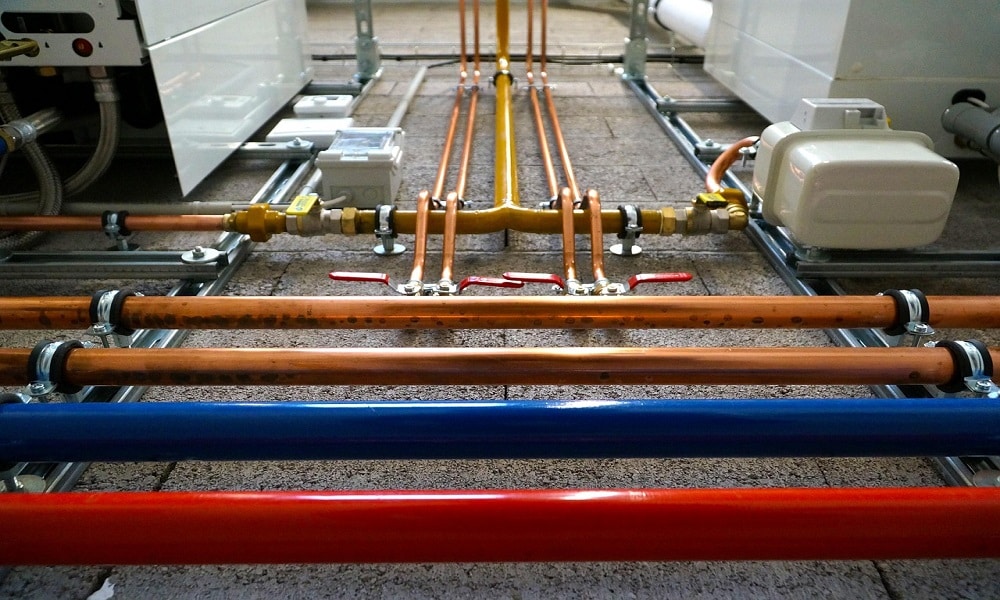Of all the things that disrupt business operations, plumbing issues are among the worst. Not only do they put your property at risk and affect your ability to continue with work as normal, but they can also be incredibly expensive to repair.
The good news is that most major plumbing issues can be avoided by scheduling in regular inspections. During an inspection, a plumber will check for signs of common problems and make sure your plumbing is in working order. But how often does your commercial building need a plumbing inspection? Here’s what you should know.
How Often You Should Schedule a Plumbing Inspection
For most commercial businesses, the general recommendation is to get your plumbing inspected at least once a year. This depends on the nature of your business and the building you’re based in.
For instance, you might need to get more regular plumbing inspections, as often as every six months, if your business’s water usage is higher than average (if you run a restaurant, gym, hotel, and so on).
Plus, if you’re based in an older building or one that has a history of plumbing issues, you may also need to book more frequent checks.
What Plumbers Look For During a Routine Inspection
When you hire a plumbing service like Military Plumbing to conduct a routine inspection, they’ll typically carry out the following checks:
- Pipe integrity inspections
- Checks for signs of corrosion
- Water pressure testing
- Drains and backflow tests
- Water heater inspections
- Grease trap checks (if relevant)
Your plumber will be keeping an eye out for a few potential issues, including slow leaks, failing parts, early signs of blockages, and anything else that’s not quite right.
They may also conduct tests that are legally required in your state, like backflow testing, to help you stay compliant with local regulations.
Signs You Should Book an Inspection Sooner
We’ve outlined the general required frequency for plumbing inspections, but that doesn’t mean you should stick to that timeline no matter what.
There are a few red flags to look out for, including a sudden drop in water pressure, slow drains (possibly accompanied by bad smells), unusual noises (from your plumbing or water heaters), and increased water bills. If you notice any of these, it’s wise to book an inspection ASAP, so you can get the situation assessed by a professional plumber.
Waiting until your next inspection is dangerous. The last thing you want is to put off a problem and end up with a burst pipe that damages your stock or equipment and causes you to lose out on several days of business.
Benefits of Regular Commercial Plumbing Inspections
Besides preventing damage and costly repairs, regular plumbing inspections offer a range of benefits that contribute to the smooth running of your business. One of the most significant is early detection. Many plumbing problems develop slowly over time, often without any obvious warning signs. A routine inspection helps uncover these hidden issues before they escalate into emergencies. For example, a minor pipe corrosion might go unnoticed for months until it bursts – unless a plumber spots it in advance during a scheduled inspection.
There’s also a major hygiene and safety factor. In commercial settings, plumbing problems can have serious health implications, particularly in food service businesses or facilities that handle sensitive materials. Standing water from leaks can become a breeding ground for mould and bacteria, while malfunctioning backflow preventers can contaminate your clean water supply. Inspections help catch these issues before they pose a risk to your employees, customers, or compliance status.
On top of this, regular inspections can help extend the life of your plumbing system and equipment. Your pipes, water heaters, and fixtures work hard every day – especially in high-use commercial environments. Proactive care, such as flushing water heaters or replacing worn fittings, can significantly improve their longevity, reducing the need for premature replacements.
Tailoring Your Inspection Schedule to Your Business
Not all commercial properties have the same plumbing demands, so it’s essential to tailor your inspection frequency to your specific situation. If your business relies heavily on consistent water pressure or sanitary conditions – like a medical clinic, industrial facility, or spa – you may benefit from quarterly checks. Similarly, if your location is prone to seasonal weather changes (like freezing temperatures in winter), additional inspections before extreme seasons can prevent damage caused by burst pipes or frozen drains.
If your business operates multiple units or floors, consider staggering inspections across zones or departments. This can make the process more manageable and help identify isolated issues without disrupting the entire building.
How to Stay on Top of Commercial Plumbing Maintenance
To make sure your commercial plumbing is getting the maintenance it needs, it’s a good idea to keep a regular service log or maintenance schedule.
If you’re worried you won’t remember to schedule inspections, save yourself the mental energy and work with a local plumber who offers planned maintenance agreements.


